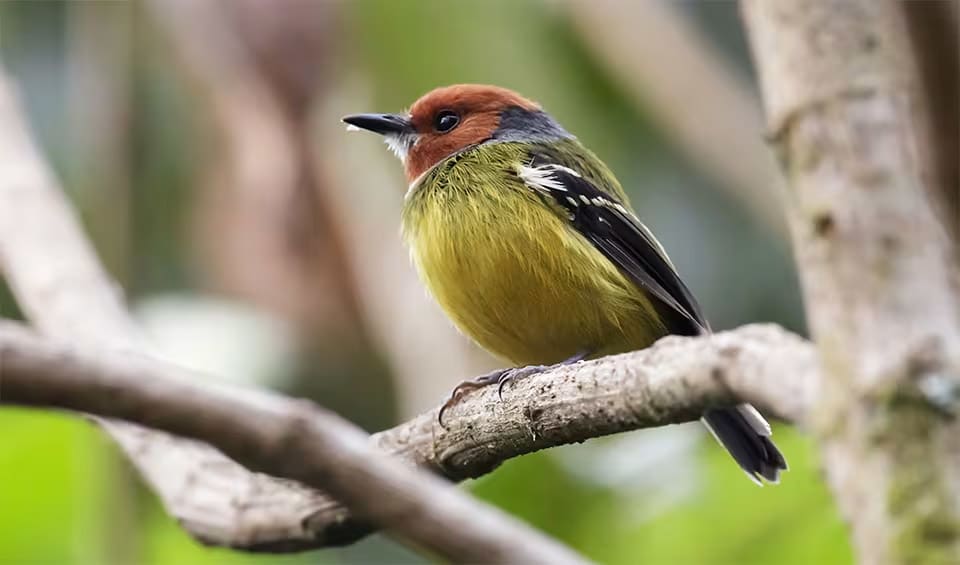These delightful little birds are renowned for their vibrant colors, energetic nature, and unique hunting techniques. With their small, compact bodies and bright green plumage, they seamlessly blend into the lush foliage of their forest habitat. The males of the species further enhance their charm with a distinct red patch on their throats, adding a splash of color to their appearance.
One of the most fascinating aspects of Johnson’s tody-flycatcher is their distinctive hunting behavior. These agile birds are known for their “hovering” technique, where they suspend themselves in mid-air by rapidly flapping their wings. This hovering allows them to closely inspect their prey, which primarily consists of insects such as beetles and flies. With their sharp beaks and precise strikes, they capture their prey with remarkable efficiency, showcasing their adaptability and ingenuity as hunters.
In addition to their unique hunting techniques, Johnson’s tody-flycatchers are also characterized by their energetic nature and constant movement. They are often observed darting among the tree canopies, exploring their surroundings in search of food. Their cheerful presence is further accentuated by their distinctive calls, which fill the forest with melodious sounds.
Despite their small size, Johnson’s tody-flycatchers play a significant role in their ecosystem. As insectivores, they help control insect populations, contributing to the ecological balance of their habitat. Furthermore, they serve as indicators of forest health, with their presence often reflecting the overall biodiversity and conservation status of the tropical forests they inhabit.
Anything we've missed?
Help us improve this page by suggesting edits. Glory never dies!
Suggest an editGet to know me
Terrestrial / Aquatic
Altricial / Precocial
Polygamous / Monogamous
Dimorphic / Monomorphic (size)
Active: Diurnal / Nocturnal
Social behavior: Solitary / Pack / Herd / Flock
Diet: Carnivore / Herbivore / Omnivore / Piscivorous / Insectivore
Migratory: Yes / No
Domesticated: Yes / No
Dangerous: Yes / No




